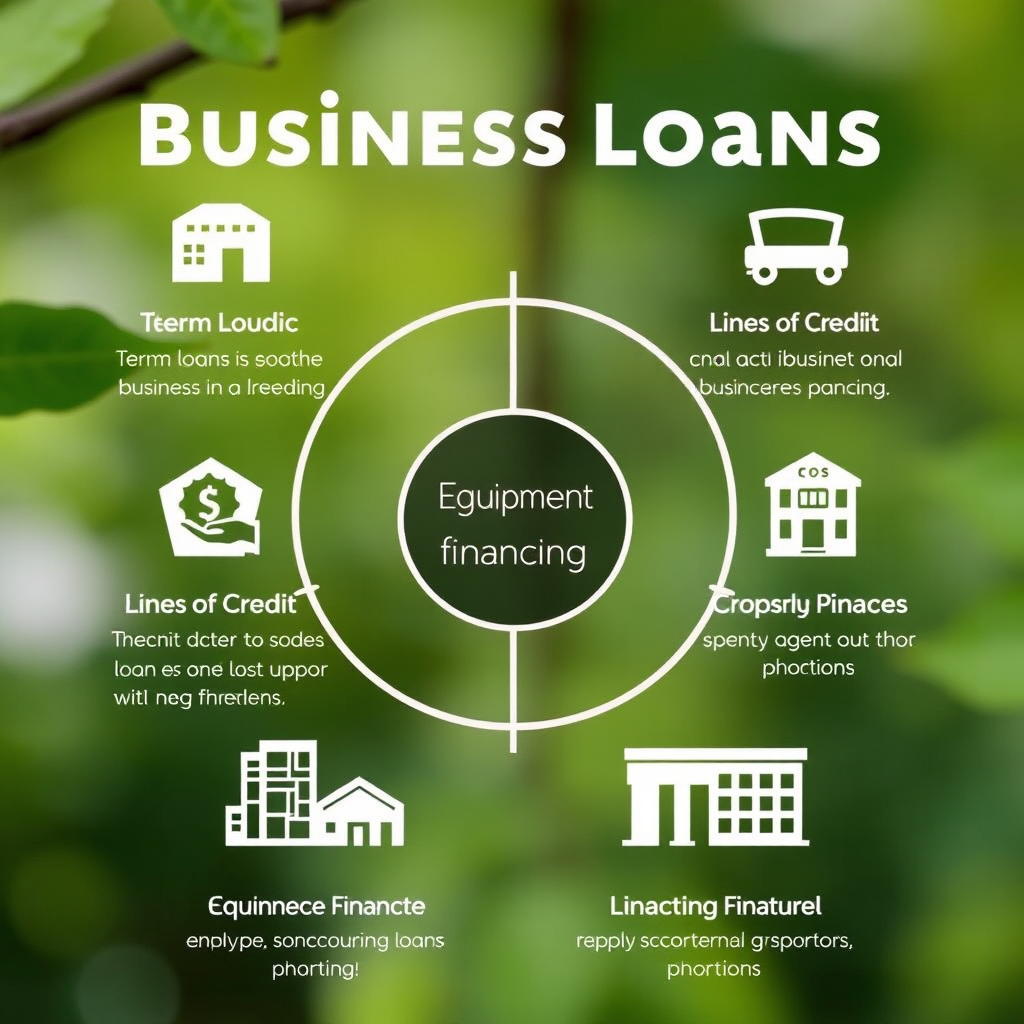Business Financing Guide: Your Complete Resource for Commercial Funding
A comprehensive educational resource for entrepreneurs and business owners exploring commercial financing options to fuel growth and success.

Understanding Business Financing Fundamentals
Business financing is the cornerstone of entrepreneurial success, providing the capital necessary to launch, operate, and expand commercial ventures. Whether you're a startup founder seeking initial or an established business owner planning expansion, understanding your financing options is crucial for making informed decisions that align with your financial planning goals.
The landscape of business financing has evolved significantly, offering entrepreneurs diverse pathways to secure funding. From traditional bank loans to innovative alternative financing solutions, today's business owners have access to a wide array of options tailored to different business stages, industries, and financial profiles.
Types of Business Funding Solutions
Startup Capital Options
For new businesses, securing startup capital is often the first major financial challenge. Several funding sources cater specifically to early-stage companies:
- Personal Savings and Bootstrapping: Using your own resources demonstrates commitment and maintains full control over your business decisions.
- Friends and Family Funding: Often the most accessible initial funding source, though it requires careful documentation and clear expectations.
- Angel Investors: High-net-worth individuals who provide capital in exchange for equity, often bringing valuable expertise and networks.
- Venture Capital: Professional firms that fund high-growth potential businesses, typically in exchange for significant equity stakes.
Traditional Bank Financing
Banks remain a primary source of business financing, offering various products designed for different business needs:
- Term Loans: Fixed-amount loans with predetermined repayment schedules, ideal for major purchases or expansion projects.
- Lines of : Flexible financing that allows businesses to borrow up to a predetermined limit as needed, perfect for managing cash flow fluctuations.
- Equipment Financing: Specialized loans for purchasing business equipment, where the equipment itself serves as collateral.
- Commercial Real Estate Loans: Long-term financing for purchasing or refinancing business properties.

Alternative Financing Solutions
The rise of financial technology has created numerous alternative financing options that often provide faster approval and more flexible terms:
- Online Lenders: Digital platforms offering streamlined application processes and quicker funding decisions.
- Merchant Cash Advances: Funding based on future card sales, providing immediate capital with daily repayments.
- Invoice Factoring: Converting outstanding invoices into immediate cash by selling them to factoring companies.
- Peer-to-Peer Lending: Platforms connecting businesses directly with individual investors.
Preparing Essential Financial Documents
Successful business financing applications require comprehensive documentation that demonstrates your company's financial health and repayment capacity. Proper financial planning and expense tracking are essential for maintaining accurate records that lenders require.
Financial Statements
- Profit and Loss Statements
- Balance Sheets
- Cash Flow Statements
- Tax Returns (3 years)
Business Documentation
- Business Plan
- Articles of Incorporation
- Operating Agreements
- Business Licenses
Maintaining accurate financial records through consistent expense tracking and personal budget management principles applied to your business operations will significantly improve your chances of securing favorable financing terms.
Understanding Terms and Conditions
Before accepting any financing offer, it's crucial to thoroughly understand the terms and conditions that will govern your business relationship with the lender. Key factors to evaluate include:
Critical Terms to Review
- Interest Rates: Fixed vs. variable rates and their long-term impact
- Repayment Schedule: Monthly, quarterly, or alternative payment structures
- Collateral Requirements: Assets required to secure the financing
- Personal Guarantees: Your personal liability for business
- Covenants: Operational and financial restrictions
- Prepayment Penalties: Costs associated with early repayment
Understanding these terms helps you make informed decisions that align with your business's financial planning objectives and long-term growth strategy.

Building Strong Relationships with Financial Institutions
Establishing and maintaining positive relationships with banks and other financial institutions is a valuable long-term strategy that extends beyond individual applications. These relationships can provide ongoing benefits for your business's financial health and growth opportunities.
Relationship Building Strategies
- Regular Communication: Keep your banker informed about your business performance, challenges, and opportunities.
- Transparency: Be honest about financial difficulties and work collaboratively on solutions.
- Consistent Banking: Maintain your primary business accounts with your lending institution to demonstrate stability.
- Professional Presentation: Always present well-organized financial information and maintain professional communication.
Strong banking relationships often lead to better terms, faster approval processes, and access to additional financial services that can support your business growth.
Expansion Financing Strategies
As your business grows, your financing needs will evolve. Expansion financing requires careful planning and often involves larger amounts and more complex structures than initial startup funding.
Growth Financing Options
Established businesses have access to additional financing options that may not be available to startups:
- Revenue-Based Financing: Funding based on your business's revenue performance with flexible repayment terms.
- Asset-Based Lending: Loans secured by business assets such as inventory, accounts receivable, or equipment.
- Mezzanine Financing: Hybrid -equity financing that provides capital for expansion while preserving ownership control.
- Private Equity: from private equity firms in exchange for partial ownership, often accompanied by strategic guidance.
Financial Planning for Success
Effective financial planning is essential for both securing financing and ensuring successful repayment. Implementing robust expense tracking systems and maintaining a disciplined approach to your personal budget principles in your business operations will strengthen your financial position.
Best Practices for Financial Management
- Maintain detailed records of all business income and expenses
- Implement regular financial reporting and analysis procedures
- Create realistic cash flow projections and monitor them closely
- Establish emergency funds to handle unexpected business challenges
- Regularly review and update your business financial plan
Common Financing Mistakes to Avoid
Learning from common mistakes can save your business time, money, and potential complications. Here are key pitfalls to avoid when seeking business financing:
Application Errors
- Incomplete documentation
- Unrealistic financial projections
- Poor preparation
- Inadequate business plan
Strategic Mistakes
- Borrowing too much or too little
- Ignoring terms and conditions
- Failing to shop around for rates
- Poor timing of applications
Conclusion: Your Path to Financing Success
Successfully navigating the business financing landscape requires preparation, understanding, and strategic thinking. By implementing sound financial planning practices, maintaining accurate expense tracking, and applying disciplined personal budget management principles to your business operations, you'll be well-positioned to secure the funding your business needs to thrive.
Remember that business financing is not just about securing capital—it's about building relationships, demonstrating financial responsibility, and creating a foundation for sustainable growth. Whether you're seeking startup capital or expansion financing, the principles outlined in this guide will help you make informed decisions that support your business's long-term success.
Take time to assess your current financial position, identify your specific funding needs, and develop a comprehensive strategy that aligns with your business goals. With proper preparation and the right approach, you can successfully secure the financing that will fuel your entrepreneurial journey.